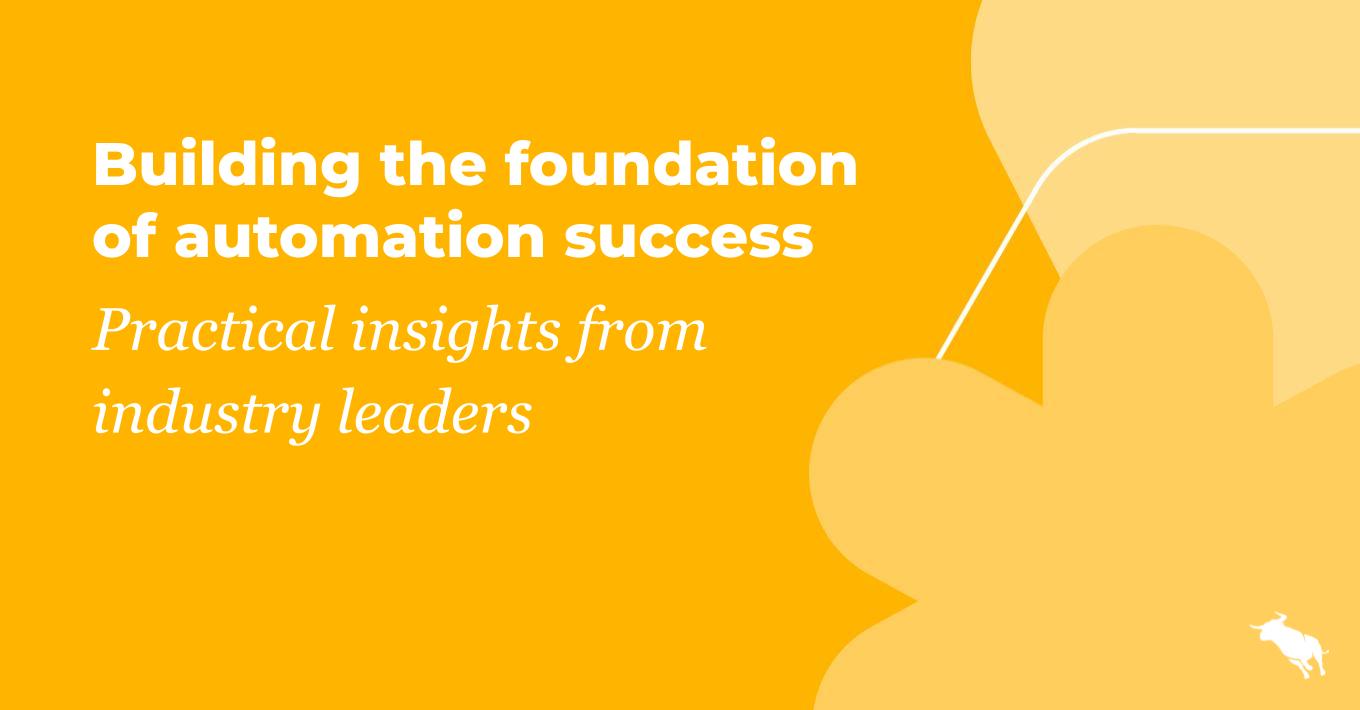Building the foundation of automation success: Practical insights from industry leaders

Automation is transforming industries across the board, but few sectors stand to gain as much from this shift as recruitment. The integration of Bullhorn Automation into staffing operations has not only changed the way companies approach marketing and client management, but has also yielded impressive, measurable results. Bullhorn data shows that agencies that automate their processes see 39% more submissions per head and fill 22% more jobs.
How can agencies achieve these results? A recent Bullhorn Automation User Group meeting, designed to share tips, tricks, and best practices between customers, uncovered one success story from Amy Kohl, Operational Lead at Manchester Staff, part of the UK Staffing Group. Her story and other examples shared during the session provide a blueprint for recruitment agencies looking to automate for greater success.
Why Bullhorn Automation?
Amy Kohl’s introduction to Bullhorn Automation began with the need to integrate their marketing software with their CRM. Before Bullhorn, they relied on Mailchimp but found its lack of integration limiting. What started as the search for a better marketing tool soon became a gateway to transforming how they handle business development.
“We realised Bullhorn Automation could do much more than just marketing,” said Kohl. After completing training with Barclay Jones, her team shifted their focus to automating business development, realising the potential to drive client engagement and revenue.
A game-changer for business development
One of the most impactful automations Kohl’s team implemented tracks website clicks from existing clients. Each time a client visits their site, the assigned recruiter is notified. This allows recruiters to update their “Hot 100” list — a priority list of top clients — based on real-time interest, making follow-ups more targeted and productive.
Previously, they used Leadfeeder, a tool that tracks website visits but it failed to generate tangible results. With Bullhorn Automation, the difference was clear. It tracks clients already in the system, making the data far more actionable. As Kohl explained, this shift from reactive to proactive engagement with clients is helping generate high-quality leads and drive revenue.
Real impact, real results
Bullhorn Automation is already helping Manchester Staff see real results, like strengthening client interactions. Recruiters now have a meaningful reason to reach out to clients, using website visit data to spark relevant conversations. As Kohl put it, “It’s a great reason to pick up the phone — ‘I noticed you’ve been looking at our site. Are you looking for candidates?’ It’s much more engaging than a cold call.” Rather than feeling like a mandatory tool, Kohl added, the tech is actively helping them work smarter.
The future of automation at Manchester Staff
Though they are still in the early stages of their automation journey, Manchester Staff’s experience with Bullhorn Automation has been overwhelmingly positive. Kohl is optimistic about what lies ahead as her team continues to explore the platform’s full potential. With automations running behind the scenes, ensuring nothing slips through the cracks, her team is now more equipped to grow and evolve.
Kohl’s story is one of many illustrating the transformative power of Bullhorn Automation. From streamlining business development to fostering deeper client engagement, automation is proving to be a game-changer for recruitment agencies. And the results speak for themselves. “We’re just a few weeks in, and we’re already seeing a real impact,” Kohl shared.
Simple automations with high returns
Kohl’s success with Bullhorn Automation isn’t an isolated case. Throughout the session, numerous examples highlighted the ways automation is driving significant results across the recruitment industry.
For instance, one company saw a 40% jump in billings without increasing headcount, while another reduced their job board spend dramatically, now filling 78% of roles from their internal database.
One standout example came from a recruiter who automated a follow-up email cadence for candidates who had found jobs elsewhere. This system re-engages candidates months later, resulting in 78 placements and nearly half a million in revenue — all without a single phone call. Matt Banbury, a participant in the session, emphasised that “this revenue does not get captured if the automation is not running,” highlighting the critical role automation plays in unlocking potential earnings.
Reporting automation’s success
Another crucial aspect of automation’s effectiveness is being able to report on its success. Billy Davis stressed that tracking the right metrics from the start allows companies to demonstrate the clear ROI of automation to stakeholders. Early buy-in, particularly from top billers, makes adoption much smoother across the business.
Tailored engagement
In a market as competitive as recruitment, personalised engagement can make all the difference. James Gilchrist from Perfect Placement shared how his team used automation to send out an email showcasing their wide range of roles. The result? A 70% open rate and a 60% click-through rate, with inboxes flooded with candidate responses. Automations like these ensure recruiters can follow up on warm leads, converting interest into action.
Automation’s long-term benefits
The session provided a clear takeaway: automation is not just about saving time — it’s about capturing revenue that might otherwise slip through the cracks. By automating busy work, recruitment agencies are not only boosting efficiency but also setting the stage for significant revenue growth.
The stories shared during this session are just the beginning of what’s possible when recruitment agencies fully embrace automation. The future of staffing is here, and it’s automated.
Stay tuned for the upcoming Bullhorn Automation Playbook, where stories like Kohl’s and many others will be showcased, illustrating how businesses are leveraging automation for success.